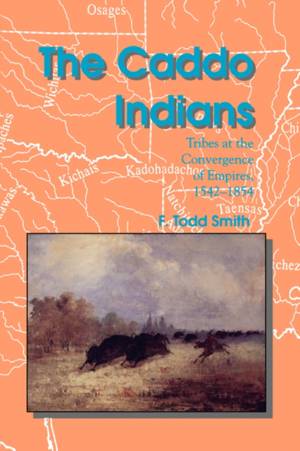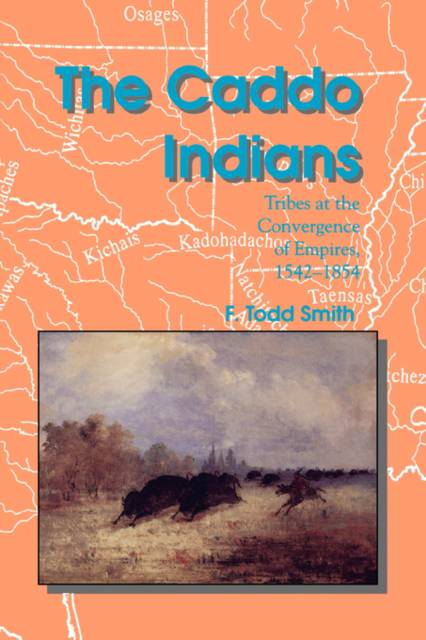
- Retrait gratuit dans votre magasin Club
- 7.000.000 titres dans notre catalogue
- Payer en toute sécurité
- Toujours un magasin près de chez vous
- Retrait gratuit dans votre magasin Club
- 7.000.0000 titres dans notre catalogue
- Payer en toute sécurité
- Toujours un magasin près de chez vous
Description
In 1542 members of the thriving Caddo Indian culture came face to face with Luis de Moscoso, successor to Hernando de Soto as leader of a Spanish exploration party. That encounter marked a turning point for this centuries-old people, whose history from then on would be dominated by the interaction of the native confederacies with the empires of various European adventurers and settlers.Much has been written about the confrontations of Euro-Americans with Native Americans, but most of it has focused on the Anglo-Indian relations of the eastern part of the continent or on the final phases of the western wars. This thorough and engaging history is the first to focus intensively on the Caddos of the Texas-Louisiana border area. Primarily from the perspective of the Caddos themselves, it traces the development and effect of relations over the three hundred years from the first meeting with the Spaniards until the resettlement of the tribes on the Brazos Reserve in 1854.In an impressive work of scholarship and lucid writing, F. Todd Smith chronicles all three of the Caddo confederacies-Kadohadacho, Hasinai, and Natchitoches-as they consolidated into a single tribe to face the waves of soldiers, traders, and settlers from the empires of Spain, France, the United States, Mexico, and the Republic of Texas. It describes the delicate balance the Caddos struck with the various nations claiming the region and how that gradually evolved into a less beneficial relationship. Caught in the squeeze between Euro-American nations, the Caddos eventually sacrificed their independence and much of their culture to gain the benefits offered by the invaders. Falling victim to swindlers, they at last lost their lands and were moved to a reservation. This intriguing new view of a little-known aspect of history will fascinate those interested in the culture and fate of American Indians. Thorough in its research and comprehensive in scope, it offers valuable insight into the differing approaches of the various European and American nations to the native peoples and a compelling understanding of the futility of the efforts of even some of the most sophisticated tribes in coping successfully with the changes wrought.
Spécifications
Parties prenantes
- Auteur(s) :
- Editeur:
Contenu
- Nombre de pages :
- 240
- Langue:
- Anglais
- Collection :
Caractéristiques
- EAN:
- 9780890969816
- Date de parution :
- 19-12-95
- Format:
- Livre broché
- Format numérique:
- Trade paperback (VS)
- Dimensions :
- 154 mm x 230 mm
- Poids :
- 390 g

Les avis
Nous publions uniquement les avis qui respectent les conditions requises. Consultez nos conditions pour les avis.






